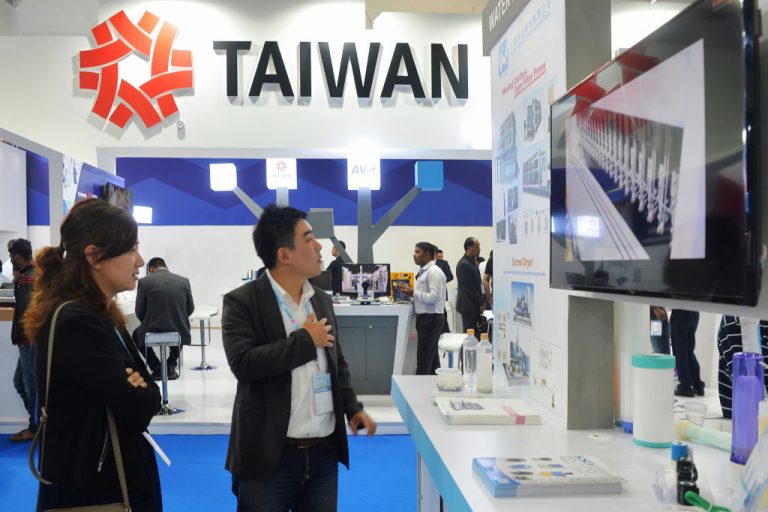The U.S. and Taiwan have reached a new agreement to strengthen cooperation between the two by establishing new frameworks in technology trade, investment and innovation.
U.S. Commerce Secretary Gina Raimondo’s office said a five-hour call with Taiwan’s minister of economic affairs Wang Mei-hua resulted in the establishment of a new development mechanism, focusing on chip supply chains and software development.
According to a statement released by the U.S. Commerce department on Monday, Dec. 6, the tech-focused framework will enable the “development of commercial programs and explore actions to strengthen critical supply chains,” while promoting lucrative investment streams into both countries’ tech sectors. The statement also said Raimondo and Wang had agreed to set up a Technology Trade and Investment Collaboration (TTIC) framework to discuss further details.
Wang told Taiwanese media on Dec. 7 that the “TTIC framework would allow closer cooperation between the U.S. and Taiwan on issues such as 5G, electric vehicles and semiconductor sectors – sectors that China seeks to lead as well.” Wang also expressed that technology exports from both nations were growing in the wake of the US-China trade war, including sensitive intellectual property and telecoms products, resulting in a surplus of technology trade between the U.S. and Taiwan.
RELATED:
US Welcomes $12 Billion Investment by Taiwan Semiconductor Firm
How Taiwan’s Deployment of New F-16V Jets Shapes Up Against Communist Chinese Fighters
Success
You are now signed up for our newsletter
Success
Check your email to complete sign up
“Supply chains are shifting due to the trade war, but the US will benefit from safer informatics and telecoms goods,” Wang added.
Largest manufacturer of advanced semiconductors
Taiwan is one of the world’s top producers of semiconductors, with Taiwan Semiconductor Manufacturing Co. (TSMC) leading the way as the world’s largest contract manufacturer of semiconductor chips. The company produces a large amount of integrated circuits used to power phones, laptops, cars, watches, refrigerators and more.
Washington has reportedly pressed Taiwan to do more in helping resolve a global shortage of semiconductors, a crisis which has resulted in the permanent closing of some auto production lines and impacted consumer goods. The Biden administration has also pressed the U.S.’ domestic tech sector to strengthen its domestic chip manufacturing.
The U.S. Commerce Department said in its Monday statement that Raimondo “underscored the United States’ support for Taiwan and the importance of the U.S.-Taiwan commercial and investment relationship,” during her call with Wang and “expressed the United States’ continued interest in working together with Taiwan on issues of common commercial concern, particularly in the area of semiconductor supply chains and related ecosystems.”
The move sparked predictable anger from mainland China as Beijing claims self-ruled Taiwan as part of its territory and has vowed to reclaim it by any means necessary. People’s Republic of China (PRC) foreign ministry spokesman Zhao Lijian called Washington on Wednesday urging the U.S. to stop further contact with Taiwanese officials, warning that meddling with China’s “internal affairs” could result in serious consequences.
Heavy reliance on Taiwanese chips
However, Beijing now finds itself in a dilemma as it is forced to tread lightly on the issue due to the fact that it relies heavily on Taiwan’s chip makers, particularly TSMC, to produce advanced semiconductors that it needs. TSMC’s compliance with U.S. sanctions has dealt a blow to mainland telecom giant Huawei, while Taiwan’s willingness to provide critical supply chain data to the U.S. government has further irked the PRC government. State media called it part of a “plot” by Washington to stall China’s semiconductor development.
South China Morning Post reported that generous state incentives have enticed top chip makers like TSMC and Samsung Electronics to build wafer fabrication plants on American soil. TSMC is building an advanced 5-nanometre foundry in Arizona costing US$12 billion, while Samsung last month agreed to invest in a US$17 billion chip plant in Texas.
However, a separate bill worth US$52 billion to provide federal funding for new semiconductor plants in the U.S. has stalled in Congress.














